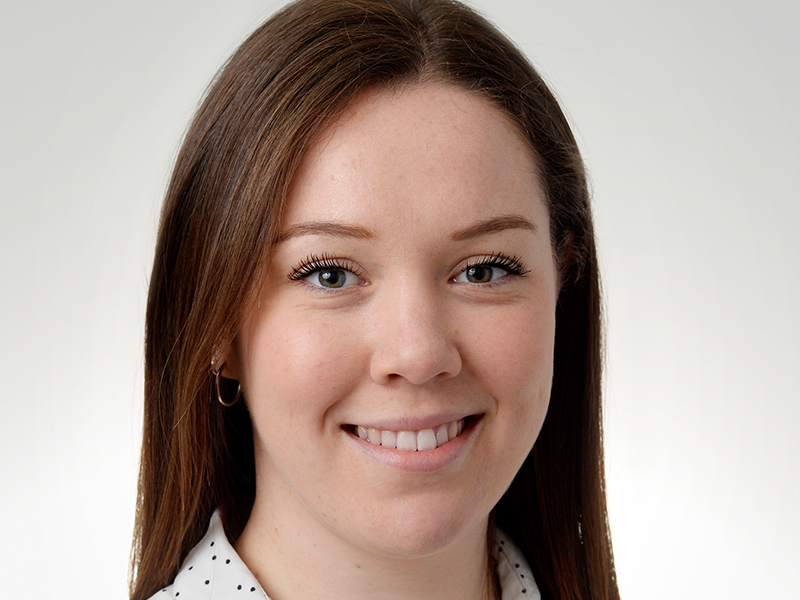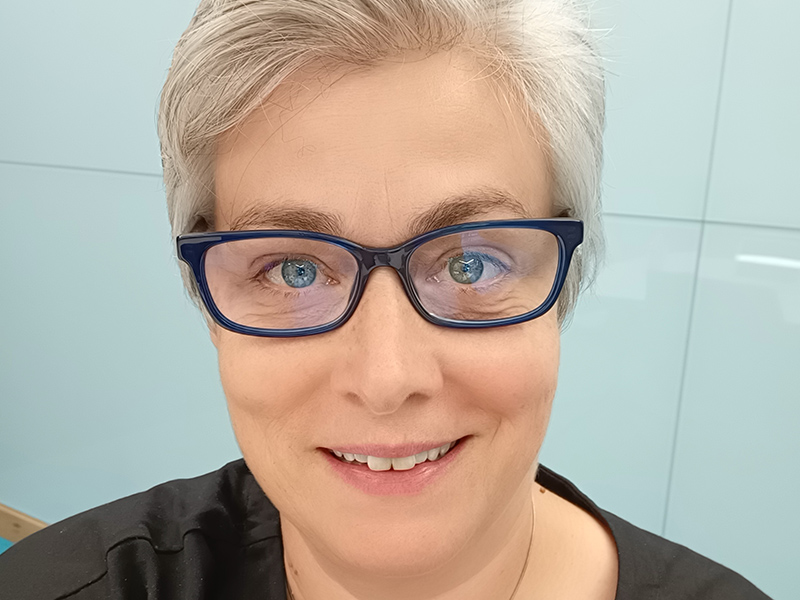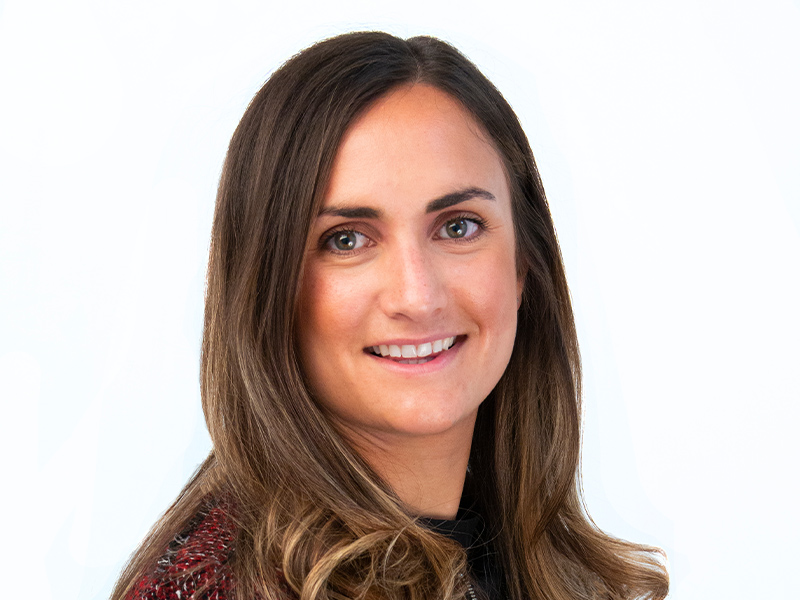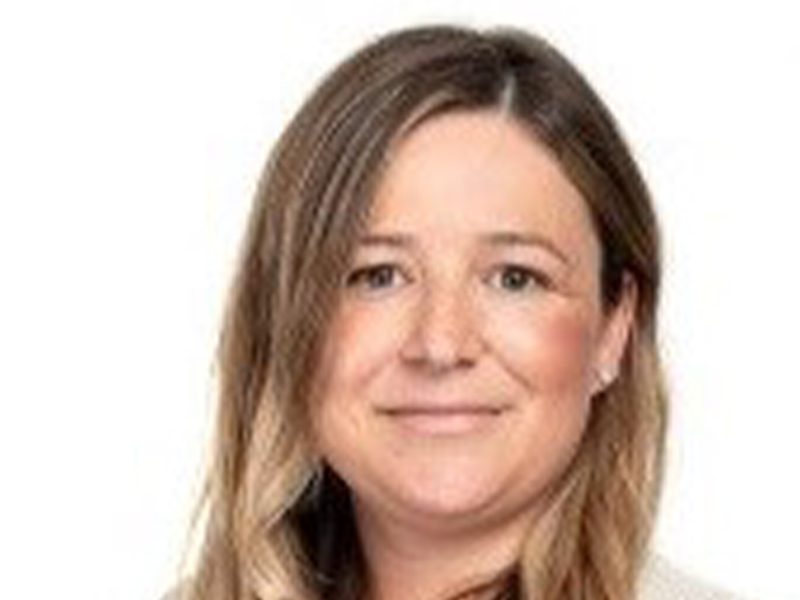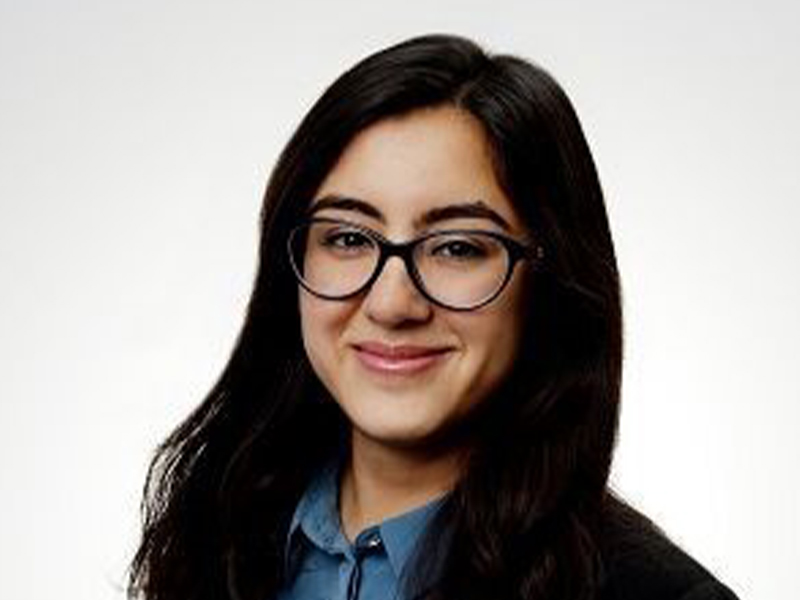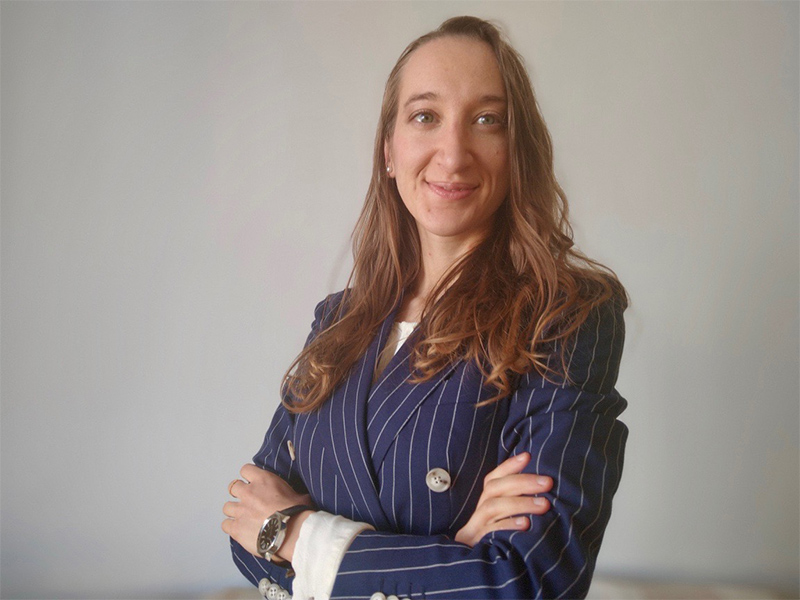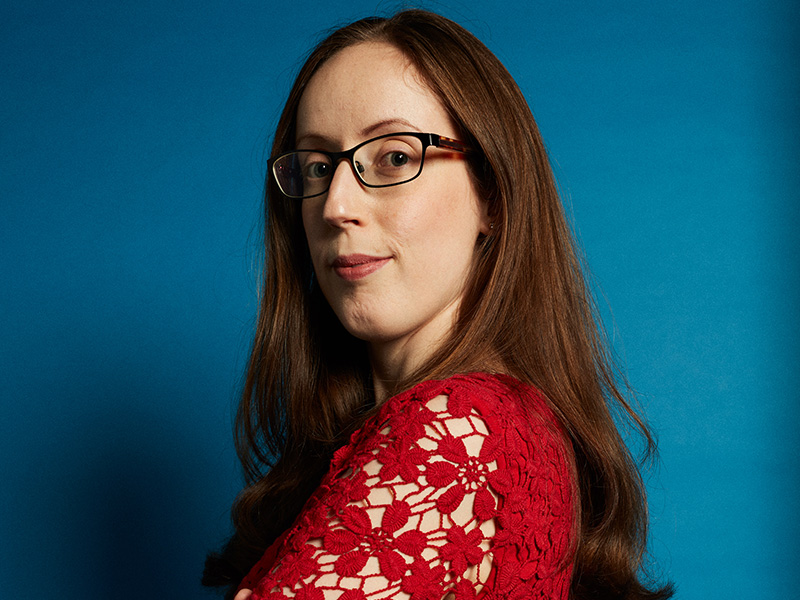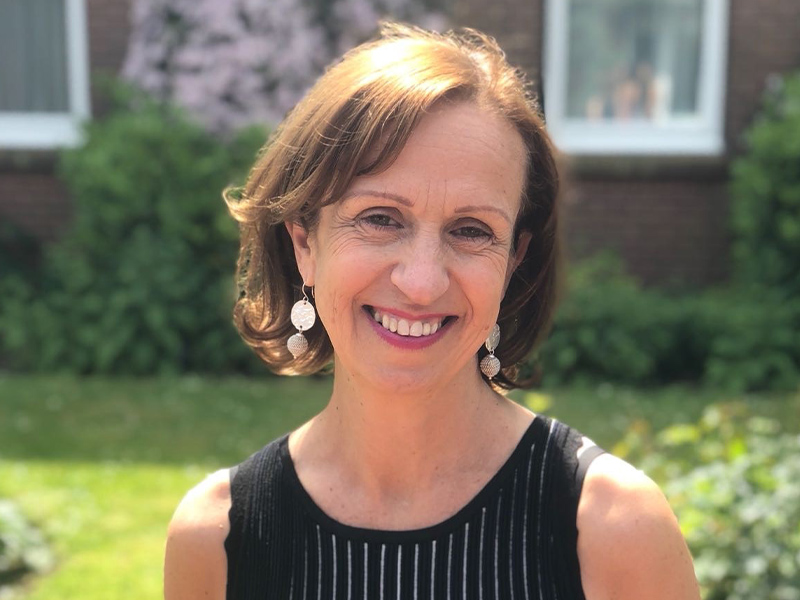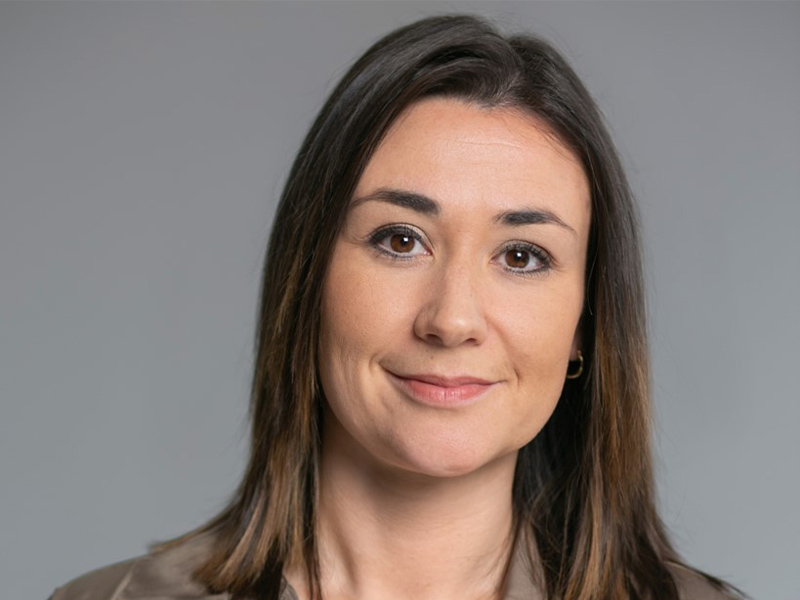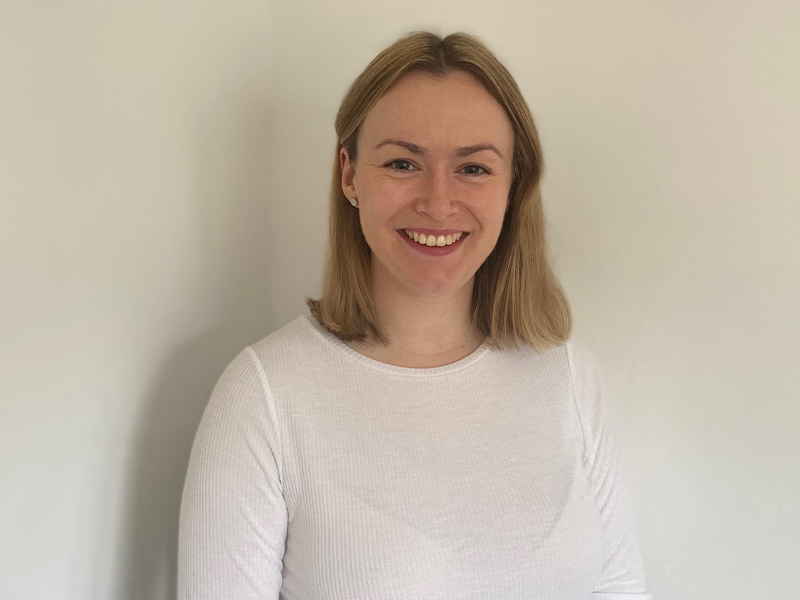Maisie Ward | Audit Manager | PwC
Hi, my name is Maisie Ward. I grew up in Colliers Wood, attending school and sixth form at a local comprehensive until I was 18.
I went on to study Biology at the University of Bath which included a year’s placement in industry. I applied for an executive assistant (EA) role at a market research company which I absolutely loved. It was my first experience working in that kind of environment, coaching people and spending time with inspiring execs. I learnt a lot, not only that EA’s know everything about anything (!) but more importantly that I wanted a career that encompassed the management skills I’d developed as well as one that allowed me to work with a range of different people and challenged me on a daily basis. This led me to the PwC Audit graduate scheme in 2017. I joined the insurance practice which initially I found quite daunting, there were so many different people, words (and acronyms!) to get my head around, alongside the extremely technical areas that come with accounting for insurance companies. But that’s exactly what I’ve grown to love – complex areas and intelligent people that challenge me on a daily basis. I worked my way through the ACA qualification and became a manager in January 2022. I work primarily with London Market clients and hold a role on our First Five Year’s committee, allowing me to support and develop our junior staff members.
Sam Robinson | Protection Specialist | HSBC UK
I have worked for HSBC from the age of 16, working my way through a variety of roles over the last 32 years, taking on financial advising roles, and then moving into leadership in a regulated role.
I am from Birmingham, and recently moved to Cornwall as my role as a Protection Specialist allows me to deliver coaching, training and support to Mortgage Advisers on a remote basis.
I moved into the Protection Specialist Role in 2018, and have worked alongside Mortgage Advisers and Wealth Advisers during that time, helping support their training, building confidence in conversations and building advice capability, which in turn means customers receive comprehensive protection advice.
Shaunna Bell | Senior Vice President / UK Management Liability Placement Leader | Marsh
In 2012 I had to choose between a summer working in the Olympic Park or a summer internship at in construction insurance broking.
Despite only being 21, I chose the sensible option and opted to kickstart my career in insurance. I went on to complete the Aon graduate scheme, powering through my ACII exams whilst also throwing myself in to all the networking events I could find. I spent 2 years on the board of NGIN during its formative years, and learned so much about the importance of owning your career.
I have now been at Marsh for over 5 years, where I initially led a team of international wholesale brokers during the toughest D&O market seen for decades. Now I am the UK Placement Leader for the Management Liability practice in FINPRO. This basically means I am our face to the market, managing our placement strategy, insurer relationships and overall market interaction. I am the person people call when things don't go to plan! I like to solve problems, and love working within a big, high energy team.
Sophie Robson | Claims Advocate | Marsh
Sophie is a Claims Advocate in the Management Liability Claims Team at Marsh, her work ensures that any contentious or complex claims are dealt with as smoothly as possible.
She has strong relationships with insurer claims teams, having had experience at insurers and as a former private practice coverage and defence lawyer, which she is able to leverage in her role as Claims Advocate advocating for global clients.
Sophie began working in the insurance industry in 2007. She is a qualified solicitor who trained in-house at US insurer HCC International, now Tokio Marine HCC, where she also sat on the wordings committee. Sophie also spent three years at insurance law firm Kennedys and was seconded to the AIG Complex Claims Team for almost a year.
Sophie has specialised in complex and high value financial and professional claims with her practice, involving both coverage and defence work. Sophie is involved in scoring insurer tenders for Marsh proprietary wordings and facilities and sits on the Carrier Engagement and ESG Claims Groups at Marsh. She was also selected for the Lloyd's of London Advance Programme which aims to develop those identified as future female leaders.
Tamanna Advani | Senior Associate | PwC
I completed my undergraduate degree in Commerce and Finance in Dubai, and moved to London in 2018 to pursue my Masters degree in Accounting, Accountability & Financial Management from King’s College London.
This fuelled my desire to learn more about London’s financial services industry and the booming insurance sector, and I therefore joined PwC in 2019 within the Insurance Risk practice. I am also currently pursuing my ACCA qualification which I will further leverage to provide my clients with effective solutions.
Over the past three and a half years, I have worked with a number of general insurance and life insurers, including Lloyd’s of London Syndicates, and have helped them navigate through change driven by regulatory, technological and operational factors. I have led multiple workstreams on complex financial and operational transformation programmes with a focus on high quality delivery and value creation. My agility and flexibility enables me to deliver over a vast number of demanding engagements including, process and control remediation programmes, UK SOx readiness assessments and cost savings identification and recommendations.
Having grown up in three countries and being influenced by a variety of cultures has helped me understand the importance of welcoming different perspectives of people from different walks of life. This, coupled with the encouragement I have received from strong female role models has led me to mentor female students from ethnic minorities and underprivileged socio-economic backgrounds. I am a certified Mental Health First Aider, and organise insightful events at PwC focused on inclusion, diversity and wellbeing.
Giulia Marzetti | Senior Carbon Management Consultant | Mott MacDonald
A female in engineering and an engineer in consulting, Giulia has crafted a portfolio career as a consultant, project manager and policy officer in sustainable transport, energy storage, decarbonisation and technologies applied to cities and industry.
As a UN Sustainable Development Goals (SDGs) advocate, Giulia is passionate about using technologies to build a more sustainable and equitable world.
Her expertise in sustainable infrastructures and climate change has brought her to be a delegate and speaker at UNFCCC COP26, COP27 and a delegate at the 12th Conference of Youth as part of COP22 in Marrakesh, a delegate to the 2019 UN Regional Forum on Sustainable Development for the UNECE region, a delegate at the Obama Foundation Town Hall Europe, 2019 Goalkeepers Bill&Melinda Gates Foundation a Talent of the UN Innovation Lab for Sustainable Development Goals and a Delegate at the Yunus Social Design Lab in Bangladesh and C40 Women4Climate programme in Glasgow.
Hayley Magorian | Service Delivery Manager | Transport for London
As Chair of TfL’s Women’s Colleague Network Group, Hayley is an inspirational and transformative leader actively promoting gender equity and inclusion across the UK Transport Sector.
Appointed Chair in 2021, Hayley has spearheaded an ambitious agenda and worked closely with Senior Sponsors and colleagues across the business to drive progressive change and promote greater diversity and inclusion. She has contributed towards policy changes, advocated for menopause in the workplace training, contributed to guidance for line managers on approaching conversations around menstrual health and menopause, and worked with colleagues to set up support groups including a menstrual health group and monthly menopause hub accessible to all 28,500 colleagues. Hayley has led the network group to organise over 100 events reaching 2,000+ colleagues on important gender related topics including: domestic abuse, zero tolerance to sexual harassment, White Ribbon, designing inclusive transport, closing the gender pay gap, infertility and menstrual health, among other topics.
All this has been achieved in addition to delivering her day job, demonstrating her dedication and passion to promoting equality, diversity and inclusion. An accredited Project Manager, Hayley has extensive project and portfolio management experience, as well as change management experience working in fast paced, operational environments. Hayley has led multi-disciplinary matrix teams and worked on complex transformative projects to drive performance improvements, benefiting millions of customers who travel TfL’s network every day. Since joining the Project Management Graduate scheme in 2015, Hayley has risen to join the London Underground Sub-Surface lines leadership team as a Service Delivery Manager.
Katie Mason | Events Manager | Railway Children
I have 23 years of experience with Railway Children and in that time I have set up a successful programme of events that generates income of over £500k annually.
I have also established excellent relationships with individuals and companies across the rail industry that have led them to be closely associated with the charity and raising hundreds of thousands of pounds.
Lauren Luck | Regional Engineer | John Sisk & Son Ltd
I am a proud Civil Engineer with over 10 years of experience working in the construction industry.
Born in Northern Ireland and raised by my single mother, I quickly learnt that women can do anything. I was delighted by big structures and inspired by the creation of largescale infrastructure. This led to a first class degree in Civil Engineering from the University of Ulster in 2012.
I initially worked as a Site Engineer with Graham Construction and was given the opportunity to work on a wide range of civil engineering projects including railways, highways, nuclear infrastructure and the beautiful Lagan Weir Bridge in Belfast. I quickly became involved in the technical management of projects and moved into Design Management and temporary works design which is where my passion still lies.
Having relocated to Manchester in 2017, I began working with John Sisk & Son and was promoted to Regional Engineer for the UK Civils Business on return from maternity leave in 2022. In my role, I have refreshed the Sisk approach to design management and have strengthened relationships through the upskilling of engineers at all levels. I take delight in empowering colleagues to improve in fields of technical innovation, safety through design and I am involved with coaching colleagues with responsibility for temporary works on site. Despite my involvement in the more technical side of contracting – I still get the opportunity to get my boots muddy and to be part of the physical transformation of our landscape as our projects progress.
Louise Nolan | Assistant Civil Engineer | Mott MacDonald
In 2015, I began reading Engineering Science at the University of Oxford, Wadham College.
This is where my passion for sustainability started. I specialised in environmental and civil engineering and my thesis focused on contaminated ground remediation to unlock unused freshwater resources for human use. Alongside my degree, I spent my time playing football and raising the profile for women’s sport; I played football for Oxford’s Blues and captained Wadham Women to their first promotion in 7 years. These years were transformative for women’s football (and my own confidence as a female football-playing-engineer!). Women’s football in the UK turned professional in 2017, and I lead the Oxford-Cambridge varsity match at the 6500 capacity Hive stadium in London as president of the University Football Club in 2017/18.
In 2019 I graduated with a Master of Engineering and joined an engineering consultancy as a Graduate Engineer. My career to date has involved a range of projects, from infrastructure design to decarbonisation studies. I have been responsible for analysis models for complex transport infrastructure projects, (building a technical background), as well as working on-site project managing refurbishment schemes for existing railway assets. I’ve progressed rapidly and I’m on course for chartership in 2024. Alongside this, my drive for embedding sustainability internally (I’m my division’s sustainability lead) has led to a variety of opportunities such as delivering the literature review for technical deep dive on the decarbonisation of bridges, or co-authoring the Decarbonising Transport, Let’s get moving Interchange Report for the London Transport Museum.

